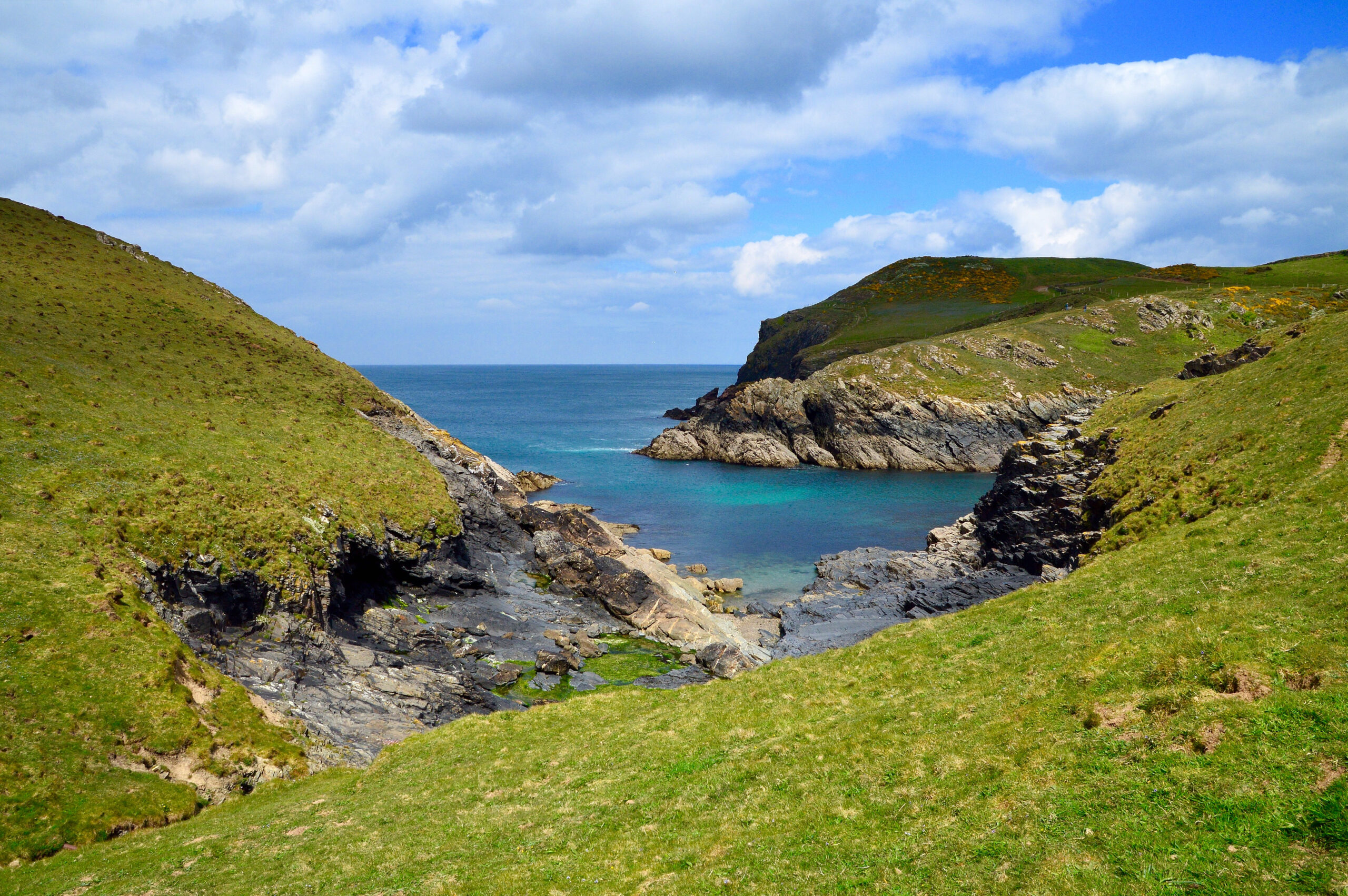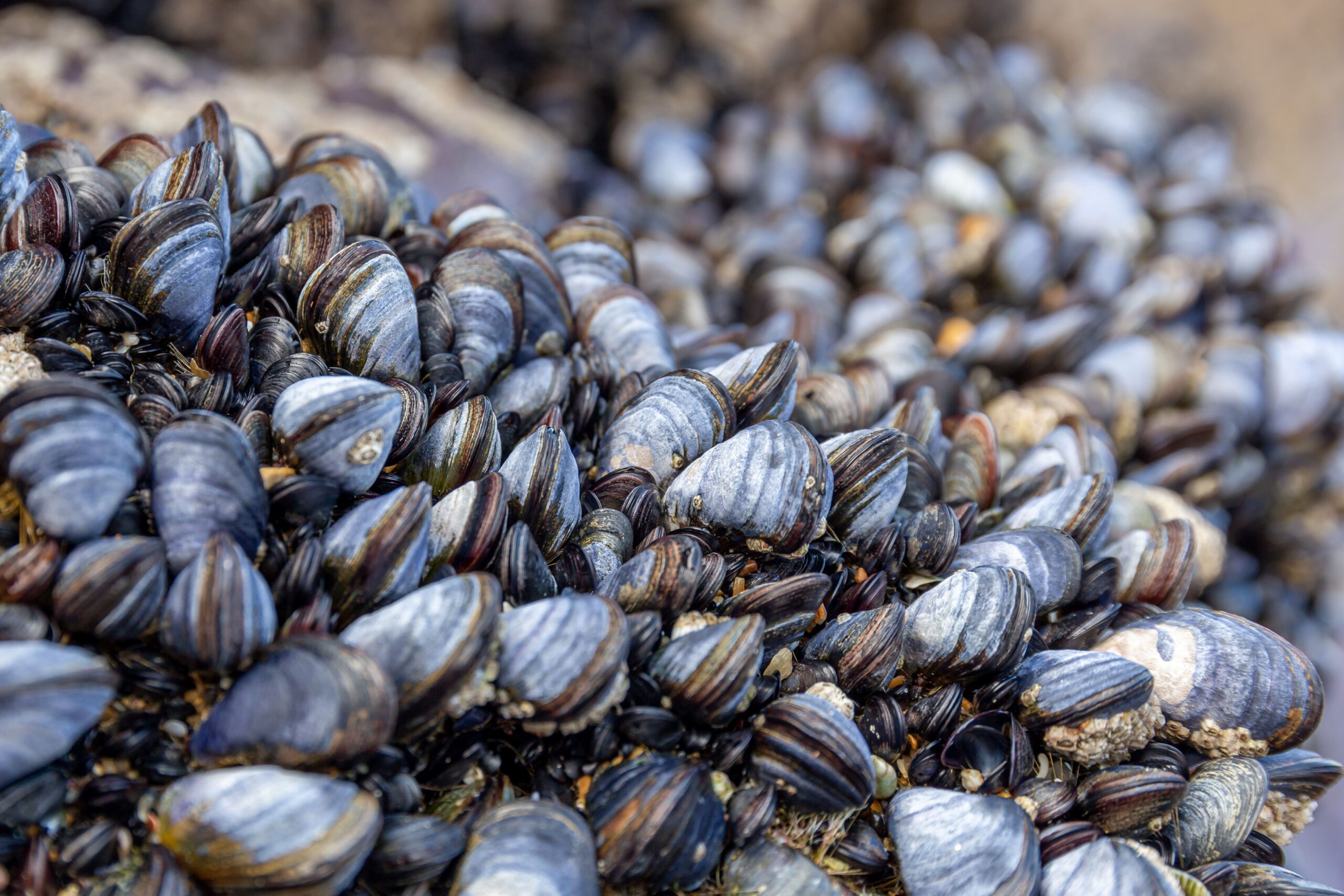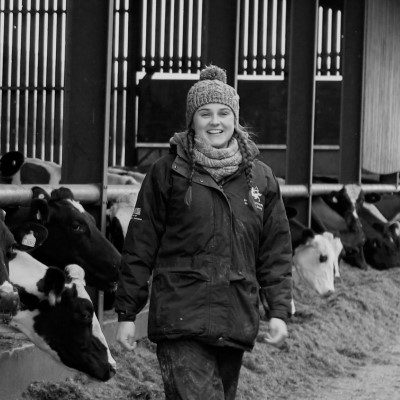CIEL | Blog: Are we too fixated on what we can see from shore to appreciate the beauty that lies beneath the waves?
Martin Sutcliffe

Aquaculture has long been plagued by an image problem, and it’s time to address it. Despite its potential to provide well-paid, stable jobs in remote and small communities while having a minimal impact on the environment, there are still naysayers who oppose proposals, as seen in the recent news regarding the seaweed farm in Cornwall.

The coast path from Port Quin harbour along the hillside to Doyden Point in Cornwall.
We must take advantage of the benefits of low-trophic aquaculture. Seaweed and filter-feeding shellfish farming offer a multitude of uses, from high-grade pharmaceutical products to feed additives for animals or alternative building materials. Additionally, these farming practices can create job opportunities and have a positive impact on the economy throughout the supply chain.
Furthermore, research has shown that low-impact sea anchors and materials like those produced by ARC Marine can enhance biodiversity on the farm. For instance, a mussel farm located off the south coast of Devon serves as a sanctuary for a variety of marine creatures, including commercially valuable species like bass and lobster.
Perhaps, the issues that are preventing the development of a sustainable, environmentally supportive lower trophic aquaculture sector in South West England are ones of perception and of understanding. According to a study published in the Journal of World Aquaculture Society in 2023, people who initially had reservations about farming of the sea were able to see the merits when presented with more information and evidence about its potential environmental impact. Interestingly, the impact on the local economy and the provision of jobs were of less concern to the stakeholders interviewed.
We need to change the narrative about aquaculture and engage with environmental groups to promote the rich opportunities that lower trophic aquaculture provides. All too often, we are fixated on the beauty of nature “at the water’s surface”, but the water’s surface is not the marine environment, it’s merely the interface that we, as people, see from the shore. If we were to drain the nearshore bays and inlets of the UK’s coast we would reveal the true marine environment – a world beneath the waves where aquaculture can enhance biodiversity, help restore habitats, and reduce the impact of human activity on the seabed.
We must show consumers and the wider supply chain that both agriculture and aquaculture can provide sustainably produced, environmentally savvy food with a lower environmental footprint while working in harmony with nature. It’s time to dispel the misconceptions surrounding aquaculture and embrace its potential for a brighter future for both humans and the environment.
And, with the continued pressures on the agri-food industry to deliver better food at a lower environmental cost, the Agri-Tech Centres play a vital role in enhancing sustainable production of food in the UK and beyond.


Martin Sutcliffe, Aquaculture Specialist
Martin is responsible for leading CIEL’s strategic and practical engagement with the aquaculture sector across the UK. He joins CIEL from the Dorset Coast Forum, having held a number of roles within the independent strategic coastal partnership for several years. He has a passion for the ocean and a deep understanding of how organisms interact with their environments, both in captivity and the wild. His commercial aquaculture experience includes working on Life Support System (LSS) design and hatchery development for Lumpfish.






